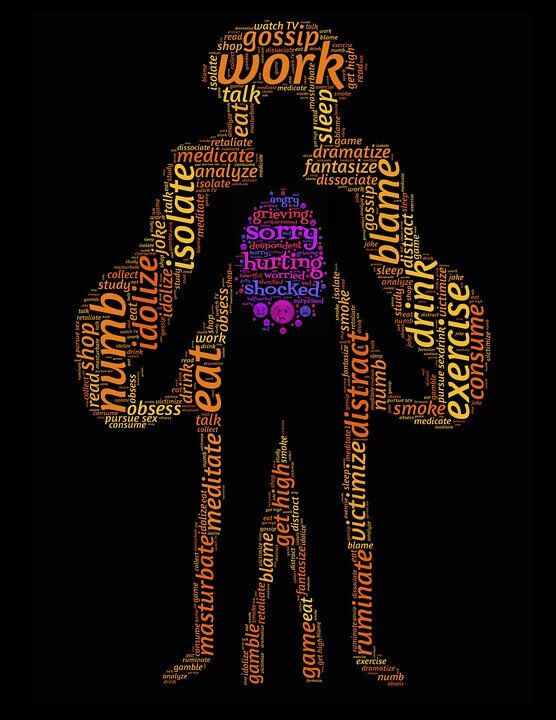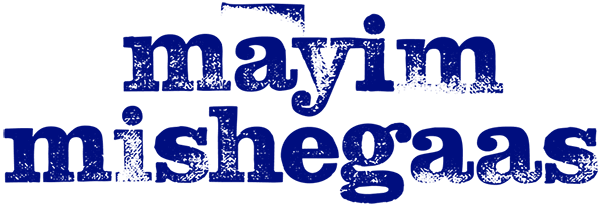
A GrokNation reader asked me to help grok something that I’ve been trying to grok for myself so I figured that was the Universe telling me to go ahead. And in considering that question, which seems relevant to a specific audience, I started thinking of something else, with broader implications.
The question: if what’s in a baby’s bottle is breastmilk, does that provide the same benefits as breastfeeding? Then the asker of the original question went one grok-y step further: if a breastfeeding mother is, say, on her cell phone while breastfeeding her baby, does the balance of benefits shift? In other words, is it better to bottlefeed and NOT be distracted or breastfeed and be distracted?
This great question should be of interest to all of you, whether you’re parents or not, because it’s not just about bonding with babies, it’s about how distraction affects how we connect to the other people in our lives. Read on…
First question first. Is breastmilk from the breast the same as from the bottle?”
My disclaimer. As a Certified Lactation Educator Counselor (University of California San Diego, 2009), I need to state that breastmilk is recommended as the best way to feed human babies by every major medical organization in the world, including the World Health Organization (WHO), the American Academy of Pediatrics (AAP) and the American Medical Association (AMA). Although there are cases where women can not breastfeed, the vast majority (upwards of 99%) should be able to breastfeed with the proper support and education. Infant formula is a critical tool for many babies and the community of mothers should be supportive and caring of both breastfeeding and formula-feeding moms, not judgmental of and punitive to mothers who do not breastfeed for whatever reason.
As both a CLEC and as a neuroscientist, my answer to this question is no. Here’s why:
- Lips on nipple. A baby’s lips on the nipple receptors signal the brain to allow milk to “let down” and to keep making milk. This is how mothers establish and maintain the best milk supply (which takes about 3 months). Many women think they “don’t have enough milk” because the pump looks not as full as it used to or they “cant’ get any milk to come out.” That’s because for many women, the plastic of a pump is not sufficient stimulation and women think that means they don’t have enough milk. Nope. The most efficient way to extract milk from the human breast is with a baby’s mouth.
- Happy hormones. Receptors on the skin and especially on the nipples signal the brain to release hormones and chemicals that not only make more milk, but facilitate the bonding and closeness that mammals need.
This is not to say that you can’t bond to your baby if you bottle feed! People think that if you say that breastfeeding is the best way to get those hormones flowing that that means everyone who doesn’t breastfeed can’t have that. That’s not what I’m saying. I am saying that the most reliable and statistically consistent way to make the hormones of the human body do what they are designed to do is to do what mammals have done for all of mammalian history to the best of your ability. Being close to your baby during feeding, during sleep and throughout the day are things that help the hormonal profile of you as a mom. It’s why in the hospital, newborns are held skin-to-skin for what they call “kangaroo care,” in order to facilitate the natural way mammals bond with and keep babies healthy.
So if you are pregnant or thinking of someday being a mom, I’d recommend that you plan to breastfeed, if possible: it’s good for your health, your baby’s health, the environment and the economy (breastfed babies have fewer health problems, statistically). See resources below for more help.
Based on this information about the way the body (usually) works, it is the act of breastfeeding – not just the feeding of pumped breastmilk –that best facilitates the establishment and maintenance of a healthy milk supply and stimulates the hormones of the nervous system that support bonding. And this happens even if the breastfeeding mom is distracted. (I had kids in the days before cell phones and I found many ways to be distracted while breastfeeding!)
Beyond Breastfeeding
But speaking of distraction… the Grokite who asked this question really had her thinking cap on. Distraction goes way beyond breastfeeding – it affects us all, especially today, whether we are parents or not. It’s about all of us, and possibly the future of our species.
Here’s why.
- Distraction is always available. There are so many more ways to be distracted now than 5, 10, 20, 50, 100 and 1000 years ago. For those who say, “Oh, it’s the same every generation,” I beg to differ. We now have computers we hold in our hands. We check email with the touch of a button. We can text. We scroll through thousands and thousands of Instagram pictures of people living their lives in ways we aren’t. FaceBook tells us what everyone we know – and what many people we don’t know – are doing at any given time: where they checked into, what they are seeing, what their baby is doing, what parties they went to, what news they think is important and which videos of babies falling over or cats jumping high they like best. There are thousands of TV channels. Renting movies is easier than getting a glass of water. Everything is available faster, in more volume, and with more choices to make than ever before. And most of it is at your fingertips.
- Distraction is constant and immediate. Because everything is available, we fall into the trap if thinking everything has to happen NOW. I speak from personal experience. I have a new email? Must read it. I got a text message? Must read it now. New likes on Instagram? Who is it and what did they say? There is no pause button on so many of our interactions . We start fights on text simply because we feel something. How many times have you sent a nasty or snarky or icy text only to realize two minutes later you misunderstood something or didn’t think it through enough? It’s not just “the kids” doing this. We do it, too. And most of the time, we’re not even sorry about it.
- We have constant access to our distractions. We need to have access at all times. I do it too. It’s horrible. We use our phones at the dinner table. We check our phones constantly, even during dinner. At the taekwondo studio where my kids take classes, every parent and nanny is on the phone pretty much the entire time. Do they constantly need to watch their kids? Of course not. But being on phones constantly is considered normal. My kids ask me all the time to stop being on my phone. A voice in my head says, “They can’t constantly want my attention! They need to learn that the world doesn’t give a crap about every precious thing they do!” But then I realize that they are right. These are my children. I made them with my DNA and I birthed them and helped them survive in a world that is unsafe and scary and lonely. I am their mom. They need my attention and my presence. It’s my job.
We used to talk more, all of us. At the synagogue I go to during the week, more often than not, I use my phone up until the moment the praying starts. (On Shabbat, we don’t use technology, but during the week it’s not forbidden.) In the past, I might have talked to others. Or sat in quiet reflection. Or looked at a book on the shelf and learned something new. Instead, I often check emails or text with friends or check Instagram. I’m not alone. I am ashamed to say I have seen men during services on their phones checking texts. Of course, I don’t know what they are doing; maybe they are doctors and need to check on patients; I don’t know. I do know that the synagogue I go to has taken to posting signs saying, “TURN OFF YOUR PHONE WHEN YOU ARE PRAYING!! RESPECT THIS SPACE!!!” Indeed.
So it’s not about breastfeeding. It’s about a level of distraction that is the new normal for all of us.
I recently had a series of medical things happen, that reminded me that I am only human and my body needed to rest. To slow down. To stop. A large part of that has been reassessing how distracted I am and recognizing that when the constant information flows unregulated into my hands, brain and soul, it is a source of stress and anxiety. I need to make some changes.
These are the changes I have made, want to make, and hope to continue to follow through on. If you see me out to dinner with my kids violating one of these, please don’t take a picture and post it and call me a hypocrite. I’m letting you know this is my goal…my ideal. I am working towards it!
My Plan for the New New Normal
- No more phones at the table. Not even in restaurants. I leave my phone in the car, especially when I am with my kids.
- Write it down. If something feels important or like I’ll forget it, I write it down in a little notebook rather than grabbing my phone in the middle of whatever I am doing to compose an email or text. It can wait.
- Setting times to work on my computer and phone. I don’t have to answer every email as it comes in, or even read every email as it comes in. I can set times to answer emails. I can set a closing time for my emailing life at 5 pm, or 7 pm. It may change depending on the week or the day, but setting some boundaries gives me some power back.
- Constantly reminding myself that very little is actually urgent. We are homo sapiens. We have a tremendous ability to reason. We control our lives, a phone doesn’t control us. Nothing has to happen with the urgency we have convinced ourselves it has to happen. Every time I pick up my phone – or don’t – it is a reminder that it’s a choice every time.
- Making healthy choices about how much time I want to spend comparing my life to others’ on the internet. I can spend hours on other people’s Instagram pages or FaceBook pages. I can spend so much time reading comments – while some of them (and you) are delightful and positive, many can make me feel like my life isn’t as sparkly or happy or whatever. When I see someone flaunting new jewelry or flowers from their husband, sometimes I feel judgmental and I need to take a step back: if I I have to be judgmental about someone’s postings to make myself feel better, maybe it’s time to stop looking.
- Exercising the muscle for digital detox (such as many Jews take weekly for 25 hours during the Sabbath, Friday night through Saturday night). This is a terrific exercise in designating a time period as technology-free and forcing yourself to STOP. Many of our readers have reported trying it out even if they are not Jewish, either in that same Friday-Saturday time period, or another 25-hour period of your choosing. It can change your perspective and restore some sense of balance. It can be really amazing. We highly recommend it over here at GrokNation!
We started with a question about breastmilk. But I think the true grok-worthy roots of the question lie in the topic of distraction. How do we distract ourselves not just as parents, but as humans? Does our distraction affect those around us? Yes. How does it affect them and our relationships with them?
How does it affect our friends and lovers? They need our presence too and we need theirs. My post about what dating was like before technology reveals what life was like when we had to interact more as part of courtship. What’s it going to be like for my kids and grandkids when they date? Or will they just swipe or be swiped at on a screen and have someone teleported to their door or be teleported to someone else’s door?
I want to believe that we can bring ourselves back, reel ourselves in from the trends I have seen in the past five years especially. For moms, for dads, for kids, for relationships; for society and humanity! I’m trying my best, and hope you’ll try with me.
Grok With Us:
- What are some of the ways you see technology taking over your life?
- What are some ways you can set aside time to take breaks?
- Have you tried digital detox, for example? What was your experience like?
- Which of Mayim’s “New Normal” items do you think you might try to implement in your own life?
Resources
- La Leche League provides free meetings for breastfeeding moms who need help. There are many free resources at hospitals, and many stores that sell things like breastpumps and nursing bras and baby toys will know of places to reach out to. Find a local midwife’s office in your city or town and ask them for resources if you need help.
- For those who bottle feed breastmilk or formula, here is one article about how to mimic breastfeeding to ensure good pacing, good swallowing and terrific bonding.
- Founder & CEO at Zuckerberg Media and mom, Randi Zuckerberg explored the subject of technology and distraction really eloquently in this piece on Kveller, this piece on Mashable, and in her book, Dot Complicated.
- Digital Detox (GrokNation)
- Sabbath Manifesto and National Day of Unplugging 2016 (Reboot)




 Read More From Mayim
Read More From Mayim
Grok Nation Comment Policy
We welcome thoughtful, grokky comments—keep your negativity and spam to yourself. Please read our Comment Policy before commenting.